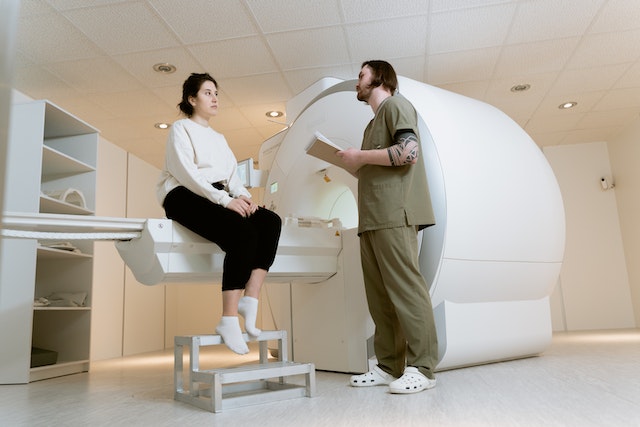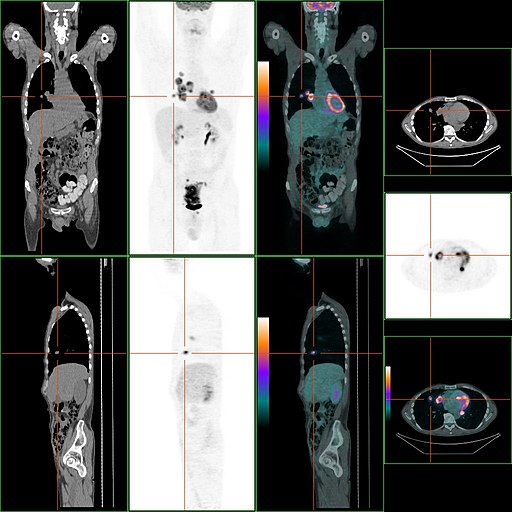In the past, colorectal cancer was familiar as a disease to affect the older generation. However, advancements in treating and detecting colorectal cancer have shown the risk is prevalent in those younger, too. Now more than ever, screening tests are important so treatment can start sooner for better outcomes.
What Is Colorectal Cancer?
The Centers for Disease Control and Prevention defines Colon cancer as “a disease in which cells in the colon or rectum grow out of control.” The rectum can develop polyps, with some growing in size. Those larger polyps can turn into cancerous ones. Smaller polyps rarely form a malignant growth.
How Is Rectal Cancer Treated?
Doctors stress the importance of recognizing the early symptoms of colorectal cancer and getting regular screenings to check it before it spreads. “If the patient is diagnosed with a stage one or localized cancer, where it’s just in the colon and hasn’t moved elsewhere in the body, it’s about 90% curative just with surgery,” Dr. Paula Denoya, director of the Colorectal Surgery Residency Program at Stony Brook Medicine told NBC news.
The first step for doctors to create a treatment plan for colon cancer is by finding what stage the cancer is in. Medical advancements in imaging have allowed this process to be more thorough and quicker to detect the area and size of cancer. The recent death of Kirstie Alley brought more attention to colorectal cancer since doctors shared this was the cause of her death. Unfortunately, Alley’s family said she had only found cancer shortly before her untimely death Monday. She died at 71 years of age.
How Imaging Helps With Colorectal Cancer Detection
Diagnostic imaging allows doctors to see what the insides of the colon are doing, which will point out if any tumors are more than benign. Newer imaging procedures give doctors an even closer look at the rectal and surrounding areas in the body.
Endoscopic ultrasounds are more invasive than routine colonoscopies. While both are meant to detect and/or provide a more thorough diagnosis, endoscopic ultrasounds go even further, using sound waves that go back and forth off of the inner body. This provides a detailed picture that doctors can study to see how rectal cancer has progressed or lessened if additional treatments were already in the queue.
Endoscopic ultrasounds have two types; upper and lower endoscopic ultrasounds. Lower endoscopic ultrasounds deal with the parts of the body in the rectum to examine tumors closely. Doctors will use an endoscopic ultrasound after other imaging screenings show potential for malignant tumors. It gives doctors the ability to treat cancer with a more reliable decision.
CT scans are another way doctors find and diagnose what stage the cancer in the colon is at. However, endoscopic ultrasounds have a higher percentage of precisely showing what stage the cancer is in.
Additional Imaging Diagnostics For Colon Cancer
A newer technique of diagnostic imaging is molecular imaging. Molecular imaging projects a picture of the cells in the body and their activity. This means doctors can see more information about a mass before it gets worse. If a tumor is present, many times before symptoms begin to aggravate a patient, this technology is able to see that cancer in the beginning stages.
Molecular imaging uses positron emission tomography or (PET) technology. A mixture, called a radioactive, is injected into the blood, and omits an image of the patient’s molecules and/or cells. If cells are numerous, this may mean colorectal cancer has spread.
Staying on top of sudden changes in the bowels, appetite, and illness is key in fighting to stop colorectal cancers before they grow larger. Regular screenings can catch otherwise undetected cancer. The advancements that technology has granted the medical world has saved more lives. The important part is ensuring these technologies are used.
Vesta Teleradiology: At the Forefront of Scientific Advancements
Vesta Teleradiology is a tech-forward teleradiology company, assisting various healthcare facilities with preliminary and final interpretations. If you’re seeking someone to fill your gaps, like nights and weekends, please contact us: 877-558-3782

